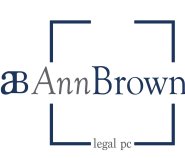The Family and Medical Leave Act was enacted in 1993 to give eligible employees unpaid, but protected, time off in the event of certain emergencies or other family related matters. The FMLA guarantees that in these circumstances an employee can not be laid off or fired if he or she needs to take this time off.
What Does the Law Provide?
The law provides up to 12 weeks of unpaid time off in a 12-month period, but with all eligible benefits, such as health insurance, in place. It also protects an employee from being fired if he or she needs to make use of this time off.
If the family member, or employee, is a member of the U.S. armed services, the protected time off extends to 26 weeks in a 12-month period.
When Can This Leave Be Taken?
In general, FMLA can be taken when you or an immediate family member is facing a serious illness and need care. Immediate family members are defined as parents, children, or spouse. In 2005, the law was extended to include same-sex unions as part of the definition of spouse.
This leave can also be taken at the birth or adoption of a child or the placement of a child into foster care into one’s home.
Who Is Eligible?
The law protects those who work for a private employer with 50 or more employees, within 75 miles of where you work, or those who work for a government employer. The employee also needs to meet certain criteria. For instance, he or she needs to have been employed for the last 12 months (or 12 months in less than 7 years, if seasonal). He or she needs to have worked 1250 hours in 12 months or about 24 hours a week.
What If I’m Not Eligible?
If the specific criteria listed by the Family and Medical Leave Act does not apply to you, you may still be protected by state or local laws, or your employment contract. You can check with your Human Resources department or state labor laws for specific information.
When you need to take leave protected under the FMLA, you should give your employer as much notice and information as you can, to ensure that your rights are protected. However, if you have made your employer aware of your situation and your rights are being compromised, we may be able to help.
If you need a lawyer to represent you, please call us for a free consultation at (319) 826-2250 or fill out our contact form.

